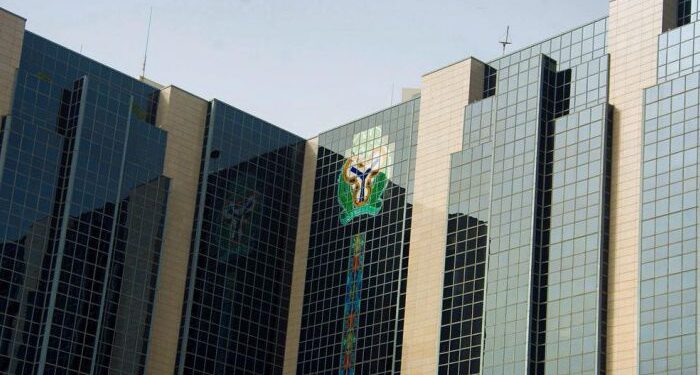Seven big Nigerian banks have reported a combined ₦18.82 trillion in restricted deposits with the Central Bank of Nigeria (CBN) as at March 31, 2025. This is a 7.3 percent increase from ₦17.54 trillion recorded in December 2024. These funds are held under the CBN’s monetary policy rules and are not available for banks to use for lending, investment, or daily operations.
The restricted funds are mainly due to the Cash Reserve Ratio (CRR), which is part of the CBN’s tools for controlling money supply and inflation in the economy. CRR is the percentage of customer deposits banks must keep with the CBN and cannot touch. Other types of restricted deposits include special cash reserve requirements and differentiated cash reserve schemes.
Among the seven banks, Access Holdings Plc had the highest restricted deposits with a total of ₦8.64 trillion by the end of March 2025. This is a significant increase of ₦1.58 trillion or 22.4 percent from ₦7.06 trillion in December 2024. In its financial statements, Access Holdings explained that part of the restricted deposit includes a $5 million balance it must maintain with the African Export-Import Bank (Afrexim) as part of a $300 million loan deal.
United Bank for Africa Plc (UBA) recorded ₦3.46 trillion in restricted deposits during the same period. This was a decrease of ₦470 billion or 12 percent from ₦3.93 trillion recorded in December 2024. UBA was among the few banks that reported a drop in this category.
Guaranty Trust Holding Company Plc (GTCO) saw an increase of ₦208 billion or 10.6 percent. Its restricted deposits rose to ₦2.17 trillion in March 2025 from ₦1.96 trillion in December 2024. GTCO explained that the increase was due to compliance with the CBN’s cash reserve requirements, which are not accessible for everyday banking use.
Fidelity Bank Plc also recorded a rise in its restricted funds, which moved from ₦1.59 trillion in December 2024 to ₦1.66 trillion in March 2025. This shows a growth of 4.4 percent. According to the bank’s report, ₦1.36 trillion of the amount is in mandatory reserves, while ₦221 billion falls under the special cash reserve scheme.
Stanbic IBTC Bank reported an increase of 5.7 percent in its restricted deposits, which moved from ₦717 billion to ₦758 billion in the same period. These funds are also not available for the bank’s daily operations as they are held with the CBN.
On the other hand, FCMB Group Plc experienced a 13.7 percent fall in its restricted deposits. The bank’s figures dropped from ₦1.44 trillion in December 2024 to ₦1.24 trillion in March 2025.
Wema Bank Plc saw a 6.3 percent increase in its restricted deposits, rising to ₦892 billion from ₦839 billion. This includes ₦26 billion under the Differentiated Cash Reserve Requirement (DCRR), a CBN scheme designed to encourage banks to support real sector lending.
The CBN, led by Governor Olayemi Cardoso, has continued with its tight monetary policy stance. The Monetary Policy Committee (MPC) recently held the Monetary Policy Rate (MPR) at 27.50 percent, maintaining the same rate for the second time in 2025. Cardoso said the decision was unanimous among committee members, who wanted more time to observe economic trends before adjusting the rate.
Other important monetary tools also remained unchanged. The liquidity ratio stayed at 30 percent, and the asymmetric corridor was kept at +500/-100 basis points. The CRR remained at 50 percent for deposit money banks and 16 percent for merchant banks.
Although Nigeria’s inflation rate dropped slightly from 24.23 percent in March to 23.71 percent in April 2025, many economic experts are concerned that the current monetary policies are putting too much pressure on the banks.
Economist Muda Yusuf, who is also the Chief Executive Officer of the Centre for the Promotion of Private Enterprise, said the high CRR and liquidity ratio are affecting banks’ main role of financial intermediation. According to him, banks are finding it harder to lend money to businesses, which raises the cost of borrowing and slows down investment and economic growth. Yusuf suggested that the government should pay more attention to fixing supply-side problems in the economy and not rely too much on monetary policies alone.
Meanwhile, financial expert Bismarck Rewane, who heads Financial Derivatives Company Limited, said the CBN’s actions are based on careful calculations. He said that reducing the amount of money in circulation through a high CRR helps to control inflation. Rewane added that once inflation starts to drop more steadily, the CBN may consider reducing both the CRR and MPR in future.
Despite the policy differences among experts, it is clear that Nigerian banks are under pressure as they try to manage customer deposits, follow CBN rules, and still support the economy. The large amount of funds tied up as restricted deposits shows how much the CBN’s policies are shaping the banking landscape.
